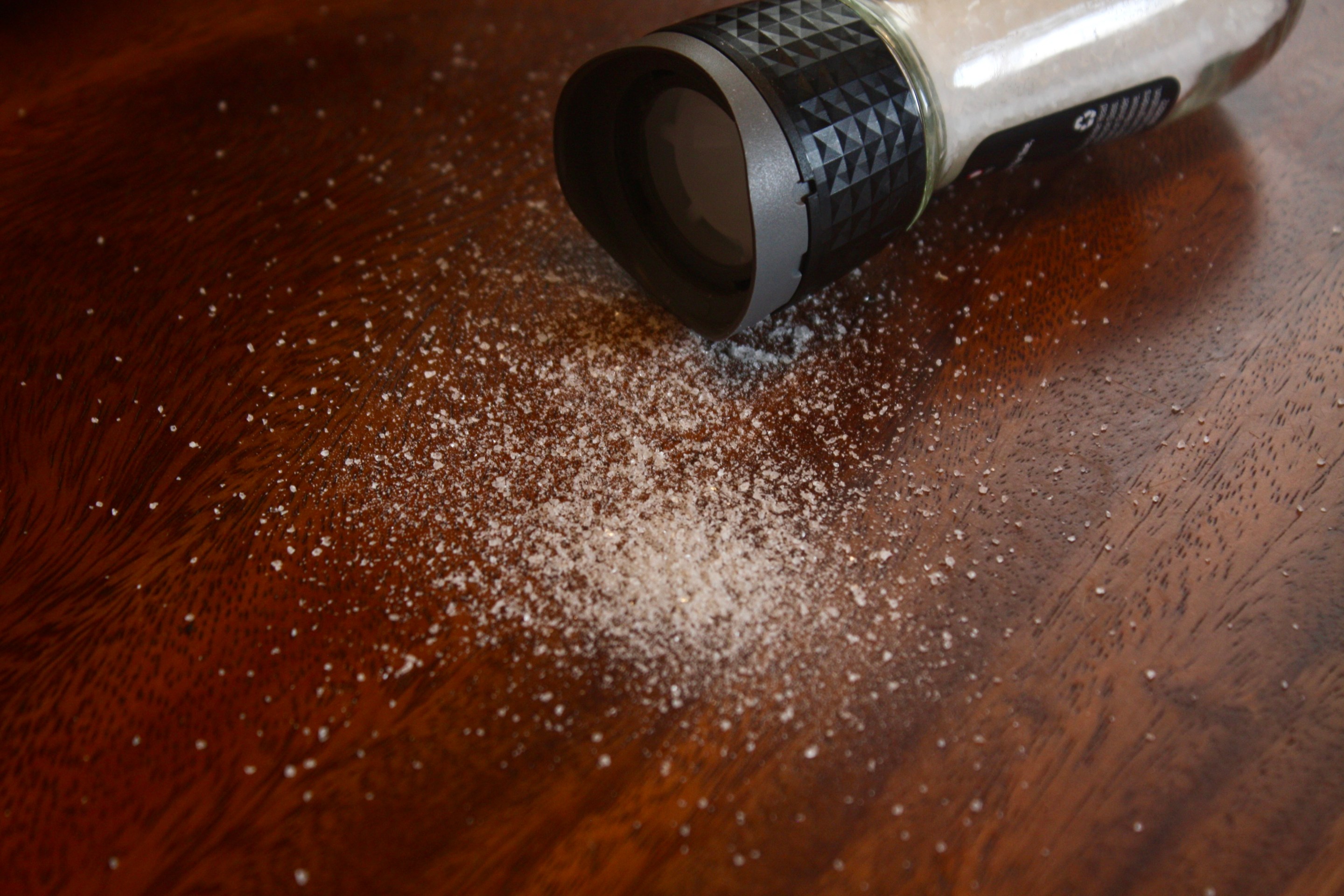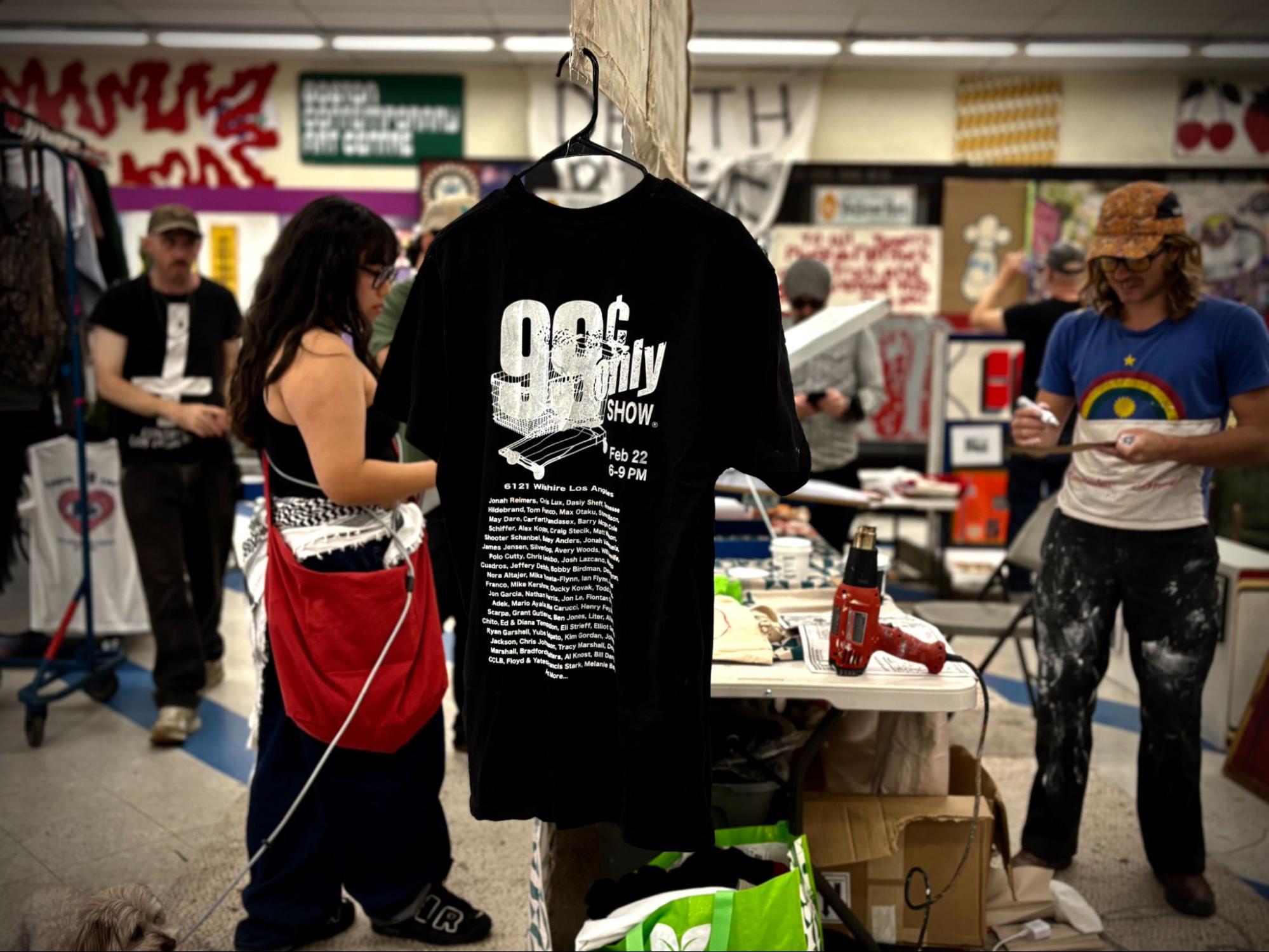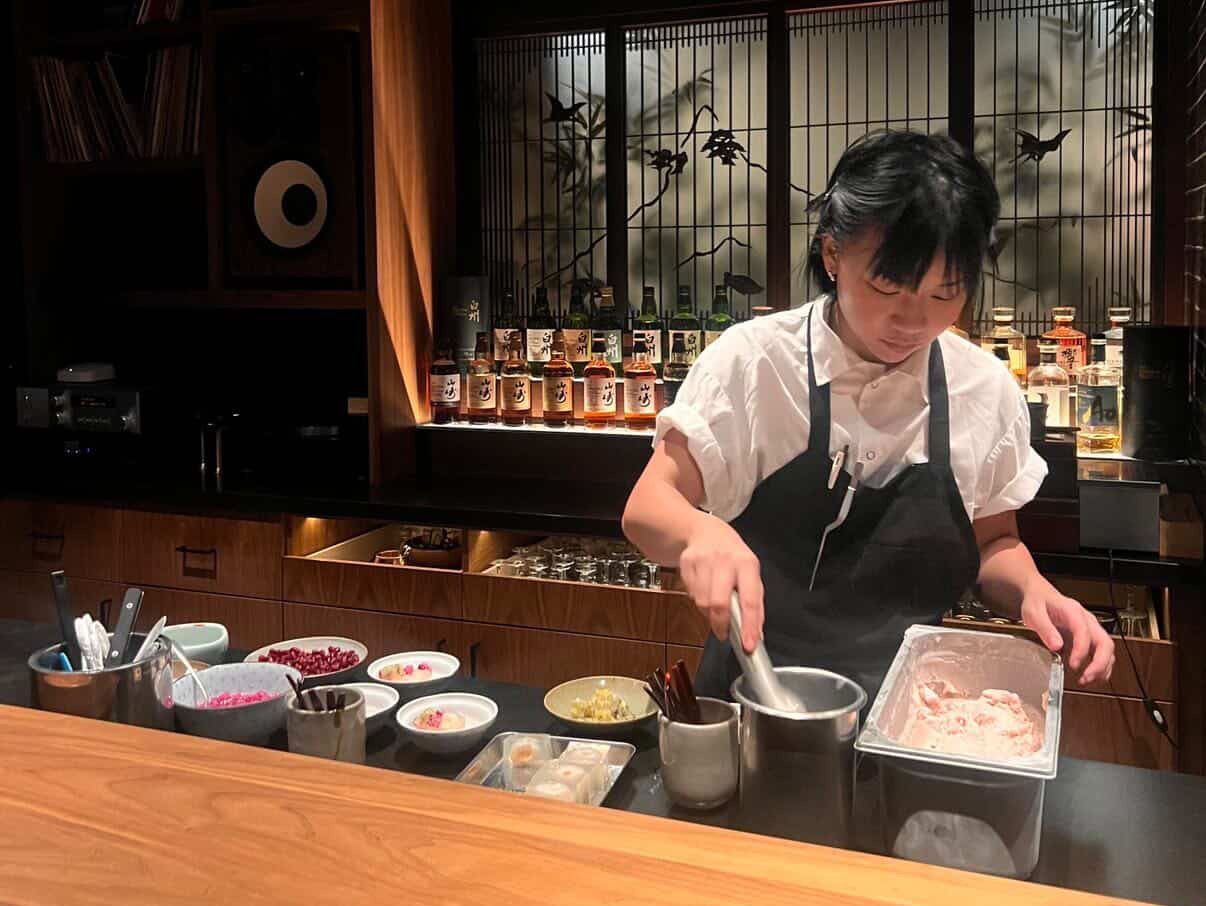On Sunday mornings, Angelenos line up at All Day Baby in Echo Park to take their version of holy communion: fried eggs, hash brown patties, Belgian waffles, and smash burgers. The standard rites of brunch are elevated by the restaurant’s hip coordinates and liberal patrons (overheard: “Did you know aioli is just mayonnaise?”)
But something is missing on the lacquered tables crowded with iPhones, crumpled napkins, and sweating glasses of arnold palmer: salt shakers. Once staples of the restaurant booth–like napkin dispensers or bare legs sticking to vinyl seats—have vanished. Gone, too, is its loyal companion, pepper, and those floating ancient grains of rice in said shakers said to ward off the evils of “clumping.”
At All Day Baby, salt is only available upon request; waiters are at the ready with glass shakers for guests requesting more seasoning. Co-owner Lien Ta explains to L.A. TACO that the laidback environment—as she describes, All Day Baby is an “ode” to the classic diner–makes patrons comfortable when asking their waiter for salt. But does ambiance actually make it easier to make yet another request of an overly busy waiter? Or is removing salt shakers merely a shortcut to reducing expenses and increasing efficiency without curtailing the dining experience? After all, Ta says, “Nostalgia’s already on the menu.”
I drove around Los Angeles in my 2018 Ford Focus looking for answers. Or, as Jimmy Buffet would say (more on him later), “searchin’ for my lost shaker of salt.” What I found was nothing definitive but instead a host of reasons that capture the small decisions L.A. restaurants must make in their search for brand identity and staying power.
In November 2020, California issued guidance for restaurants to reduce the spread of COVID-19, including suspension of shared food items such as condiment bottles and salt shakers. Many restaurants pivoted to paper salt and pepper packets, like the iHop in Cypress Park, where the staff was required to dispose of all seasoning packets—even if unopened—between customers. “It was messy,” says employee Yubeo Luis, “[It was] a lot of waste.” In 2022, the North Figueroa Street location finally reinstated glass shakers. But not every condiment was so lucky: once prominently featured on every table, the chain’s alternative syrup flavors—strawberry, blueberry, and butter pecan—never returned due to (understandable) unpopularity among customers.
At Little Doms in Los Feliz, renegotiating the post-pandemic table setting is like solving a puzzle. The Italian American hotspot only returned shakers to the table recently. First, director of operations Jessica Schmidt had to train an entirely new staff and then determine the sanitization process (shakers are emptied, cleaned, and refilled a few times a week). It also just took a minute for customers to feel comfortable touching something communal. “It’s putting pieces of Humpty Dumpty back together again,” says Schmidt. “Everything’s a little incongruent.”
Across town on a recent Saturday, the bar at Father’s Office on Montana Avenue is packed with dad bods watching day two of the U.S. Open. The menu is tapas-style: stuffed piquillo peppers, patatas bravas, and spicy, sour ribs. The infamous, French-inspired “FO burger” is served as-is, meaning the dish comes pre-salted and sans condiments. There also aren’t any salt shakers in sight. Owner and chef Sang Yoon imposed a strict no-substitution rule shortly after he purchased the gastropub in 2000. “Nothing’s wrong with ketchup,” Yoon said in an Eater interview, “[but] it’s also a really strong flavor and [doesn’t] belong on the burger.”
While the kibosh on ketchup has turned off plenty of customers, the franchise’s fans are deferential. “If you go to a restaurant,” says Father’s Office regular Mike Briller, “you don’t have the right to request food how you want it.” After a bike ride around Santa Monica, Briller stopped by for a late lunch with his family. Slumped over the handlebars, his two kids watch ravenously as Briller heads inside the 21+-only restaurant to pick up their order. “The kids love ketchup,” Briller continues, “but it doesn’t stop them from enjoying a FO burger.”
Salt isn’t the only conduit for sodium. Keegan Fong, owner of the homestyle Chinese restaurant Woon in Historic Filipinotown, never considered adding salt shakers to the table because they’re not included in traditional cuisine.
“We don’t even offer soy sauce on tables because there is a stigma around adding more soy sauce to Chinese dishes,” Fong tells L.A. TACO. “The chef usually feels as though the food is seasoned how it should be.” Still, Woon displays bottles of “Mama’s Way” hot sauce on every table, which is intended to be dabbed on chewy noodles, scallion pancakes, and wings. The red bottles bearing Woon’s logo are available for purchase ($14), along with their homemade stir fry sauce ($14) and shakers with dehydrated sea moss mixed with kombu seaweed salt ($20).
At Woon, evidently, you can pile on the seasoning—as long as it’s the chef’s choice.
Is this paternalistic, or do chefs have a proprietary right to determine the seasoning of their food? Fong is right; adding salt to a dish, even sparingly, is the same thing as issuing a correction. That’s why waiters shudder when patrons douse their french fries with salt before biting. Or why my grandmother would frown at any gentile who would dare take a shaker to her brisket.
But not everyone takes offense. At Jimmy Buffet’s Margaritaville restaurant in Universal City, salt shakers are present at every table. And this makes sense; after all, Margaritaville is a lawless place between the inflatable seaplane hanging overhead and eager tourists wastin’ away with every frosty sip. Chef Damien Davis says he doesn’t care if guests add salt to their meals.
Instead, Davis, who slings shrimp po’ boys and jerk chicken, laughs: “I let go of that part of my ego a long time ago.”






